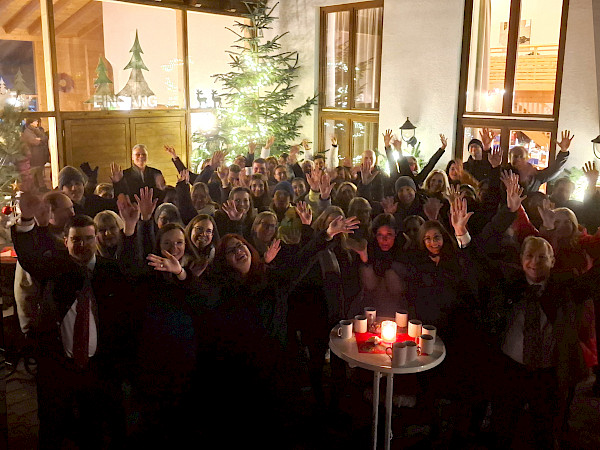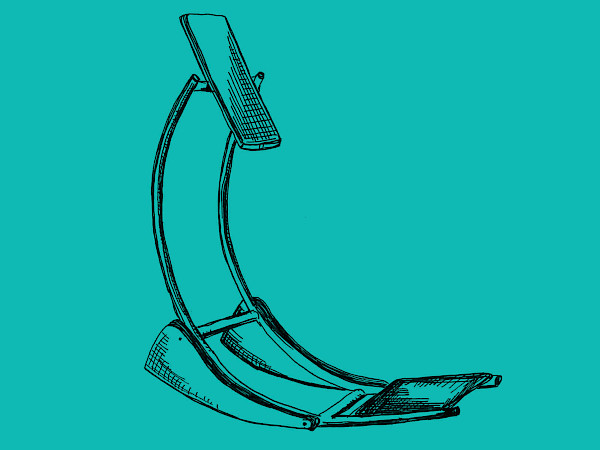Botanyia – Shapely plant pots
18.10.2021

The Shark Tank of Patents
In season 10, episode 3, of the TV show "Die Höhle der Löwen" (German version of the US show Shark Tank and the UK show Dragon's Den), a young start-up from Freiberg, Germany, presents a plant pot called Botanyia: a plant container with a natural stone look that is supposed to imitate marble and sandstone.
The product: Botanyia.
What is it about?
Botanyia is a plant pot cover that consists of two halves. A magnetic click closure allows a plant pot to be enclosed by the two halves of the cover. Botanyia is designed to provide thermal insulation in addition to protection from evaporation, providing ideal protection for plants.
The patent application
(Ref.: 20210034.3)
As mentioned above, a European patent application has been filed for Botanyia. A European search report has already been drawn up for this.
The search report
In the search report, the examiner raises objections to the patent application. In addition to novelty and inventive step, the examiner also assesses other substantive and formal aspects that a patent application must fulfill. These substantive aspects, in particular patentability and clarity, are discussed in more detail below.
Info: According to European legal understanding, there are two essential phases: Search and Examination. This distinction has grown historically. In most cases, the patent application is evaluated by one and the same examiner or examining division during both phases. At the European Patent Office (EPO), an examining division always works in threes to ensure a coordinated and compliant decision on grant or refusal. This is to achieve a high quality of patents granted by the EPO.
A) Patentability
Regarding the patent application of Botanyia, the examiner raises the objection in the search report that parts of the claims fall under the exclusion of patentability according to Art. 52(2)b) EPC. The reason for this are the two terms "natural material-like" and "decorative element" (cf. original claims 5 and 8 of the patent application).
The exclusion from patentability according to Art. 52(2)b) EPC states that aesthetic creations, such as designs, are not considered inventions. A design may be an invention in itself, but not according to the European Patent Convention (EPC). Here, an attempt is made to draw a dividing line between a design creation, which is characterized by form and elegance, and a technical achievement, which is characterized by functionality and practicability.
With regard to the examiner's objection raised concerning Art. 52(2)(b) EPC, we agree: by deleting the terms "natural material-like" and "decorative element" from the corresponding claims 5 and 8 or by deleting the corresponding claims, this objection could be overcome.
b) Clarity
Furthermore, in the search report on Botanyia's patent application, the examiner raises the objection of clarity for parts of the claims under Art. 84 EPC. As a reason, the examiner states that a turntable device as defined in claim 10 cannot be part of the claimed covering device.
Info: Clarity is a necessary condition in European patent law under which it is intended that the claimed subject-matter is clear and understandable.
With respect to the clarity objection under Art. 84 EPC, the examiner states that it is not clear how a "device which is intended to cover the root area of a plant should at the same time also be able to enclose this root area in such a way that it turns the entire plant". It is further stated that the claim would also cover such devices "which can be placed as covers on the ground around a stem, with the plant not in a pot but planted in the ground". It does not seem clear to the examiner here how a turntable would turn such a plant that is planted in the ground. The examiner concludes that the scope of protection must be limited to flower pot covers. The breadth of the claims directed to a cover is not justified from the description.
Info: The so-called skilled person is responsible for the assessment of clarity. The skilled person is a fictitious person who is active in the technical field of the respective patent application. The skilled person has no special technical skills, but knows the prior art very well. According to established case law, the skilled person is to interpret the claim in a technically reasonable manner. This is done by appealing to the willingness to understand the content of the claim and not with the intention to misunderstand it (cf. general principles of the case law of the Board of Appeal).
In our view, in the case of Botanyia, the examiner violates the general principles of the Board of Appeals in the clarity objection raised, specifically the principle of understanding the claims and not intentionally misunderstanding it. Specifically, the examiner refers to the non-meaningful case that the cover has a turntable for rotating the plant when the stem of the same is planted in the ground.
According to the general principles, the skilled person, when considering a claim, should rule out interpretations which are illogical or which do not make technical sense. Thus, in our view, the examiner's interpretation should be dropped in the present case.
Conclusion
Botanyia's patent application was used to show how objections raised by examiners can be countered to successfully meet the requirements of the European Patent Convention (EPC).
In general, the claim should be viewed through the technical eyes of a skilled person who is willing to understand it. The principle of the skilled person corresponds to a kind of logical and technical test, which should avoid creating interpretations based on technically inconsistent constructs.
In view of the partial aspects cited from the search report and on the basis of the cited documents, a patent with a fairly broad scope of protection could have been obtained in our view. Broad protection clearly means that potential competitors and imitators can be effectively prevented from entering the market.
Disclaimer: The above contribution reflects the personal opinion of the author. The assessments and statements made in the article do not constitute legal advice and are provided under exclusion of any liability. If you need an assessment of an individual case, please contact the author and/or the law firm KUHNEN & WACKER.
Further news and
publications from K&W

Start Your Career at K&W
and Become Part of Our Team
Are you ambitious and flexible? Do you like to work independently and are prepared to take responsibility? If so, K&W is your place to be.
Our HR manager Elwine Kaschner looks forward to receiving your application.





